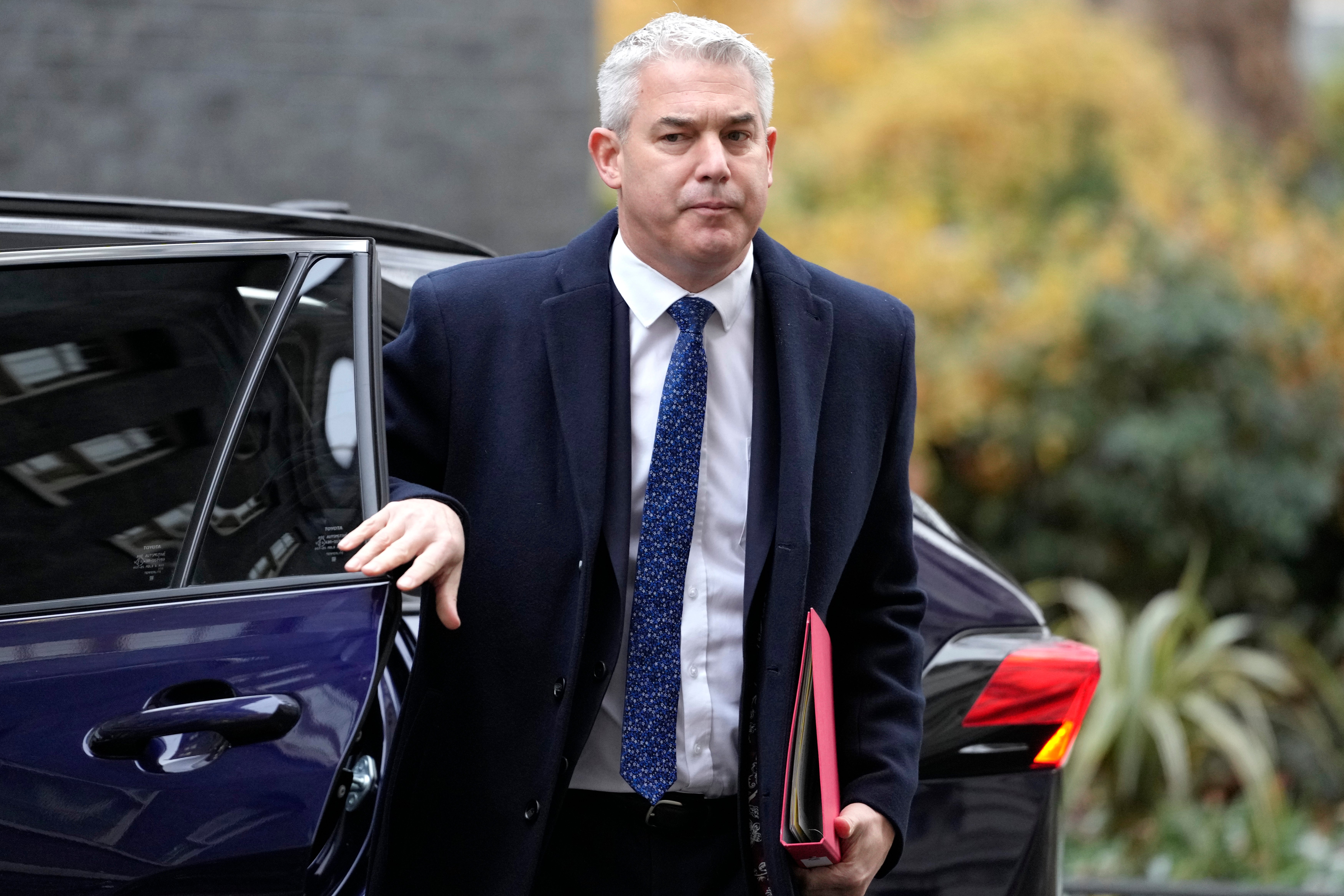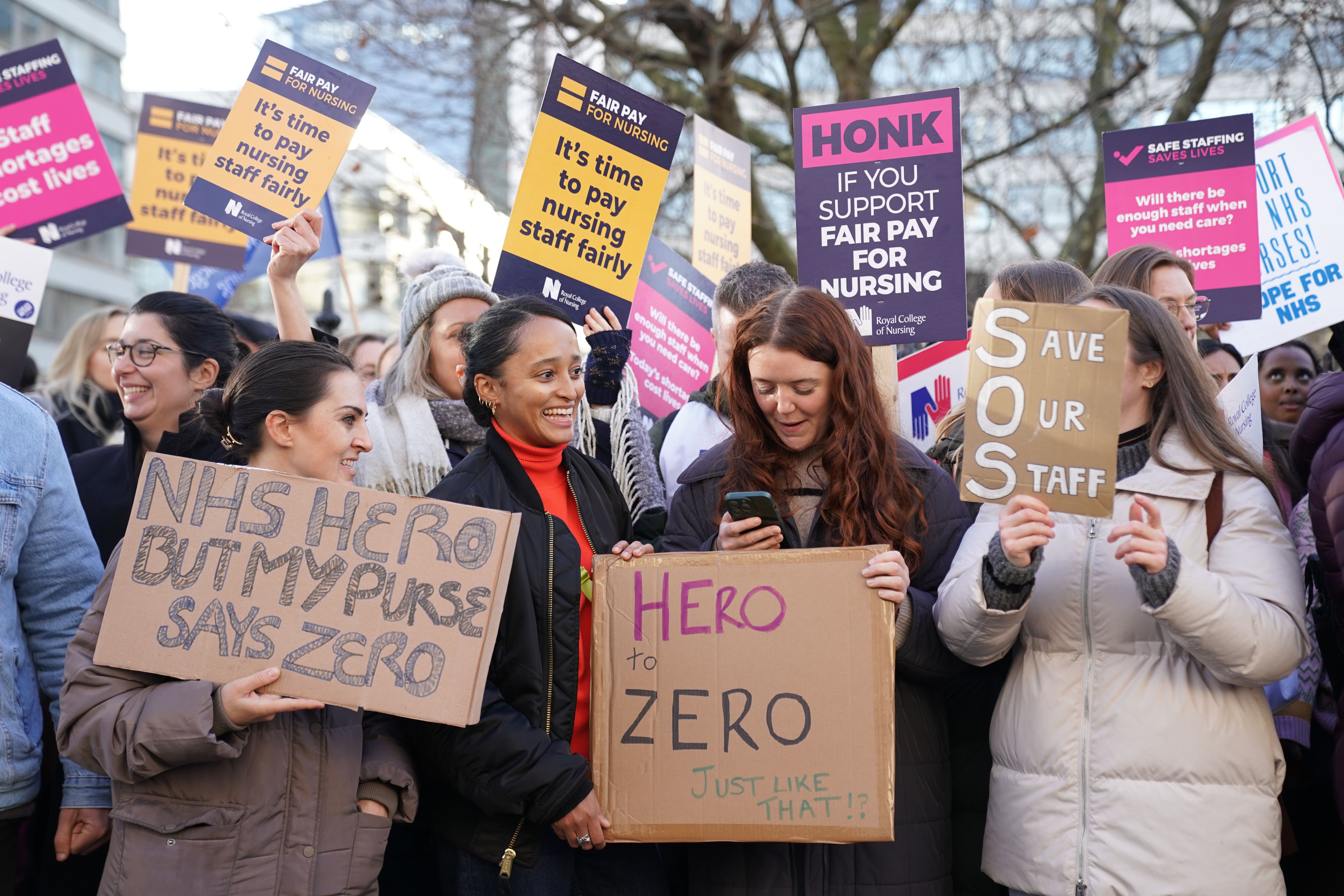Steve Barclay considers plan to backdate next year’s NHS pay deal
Hopes of breakthrough rise as health secretary looks at proposals to top up pay

Health secretary Steve Barclay is considering backdating next year’s NHS staff pay increase as part of efforts to prevent further strikes in the health service this month.
Sara Gorton, head of health at Unison, said there had been an “acknowledgment” from Mr Barclay during talks that next year’s pay settlement could involve a “reach-back” to top up the current year’s pay.
It raises the prospect that the pay deal for 2023-24 – due to be agreed in time for April – could be backdated and applied to the final quarter of the 2022-23 financial year.
However, Unison’s general secretary Christina McAnea, asked on BBC’s Newsnight about the idea of a backdated pay offer, suggested it may not be enough to avoid strikes. “If we were talking about a fairly low sum … then no, I don’t think it would be enough.”
In a another potentially significant move, the health secretary also told unions he will consider their calls for a one-off hardship payment ahead of a review looking at next year’s pay settlement starting in April.
A source close to Mr Barclay told The Independent that a one-off payment “was raised by the unions and we agreed to take it away and look at it.”
One health union source told The Independent that a one-off payment of £1,000 would be something the union would consider in a bid to achieve a breakthrough in talks.
But planned strikes by ambulance staff and nurses still look set to go ahead after trade union leaders branded talks with Mr Barclay over the pay dispute “bitterly disappointing” and an “insult”.
A walkout of ambulance workers will go ahead on Wednesday after the failed crisis talks, during which Mr Barclay told union leaders any pay increase would have to involve greater “productivity and efficiency” from staff.
Unite negotiator Onay Kasab said Mr Barclay told them they would need to “justify” a payment through greater productivity. The union official said it was “absolutely clear” that the government “wants our members to give more … that is absolutely outrageous.”
“This isn’t a factory we’re talking about. We’re talking about people who are working well beyond their contracted hours anyway,” the Unite official told broadcasters. “When you have staff working 18-hour shifts, I think that’s insulting.”
The Royal College of Nursing (RCN) described the 45-minute meeting with Mr Barclay as “bitterly disappointing” and criticised his unwillingness to discuss a 2022-23 pay award. The RCN said strikes planned for 18 and 19 January would still go ahead.
And the GMB union said the 11 and 23 January ambulance strikes would go ahead as planned after the talks “fell well short”. Rachel Harrison of GMB said: “There was some engagement on pay – but not a concrete offer that could help resolve this dispute.”

Meanwhile, the government introduces its controversial new legislation to enforce “minimum safety levels” during strikes in parliament on Tuesday.
Business secretary Grant Shapps told Sky News he wanted to “make sure we don’t end up in a situation where people’s lives are at risk, whilst still respecting the right to withdraw labour and strike”.
Asked about union claims that NHS staff were being asked to work harder for higher pay, Mr Shapps said: “I don’t think it’s a correct reflection.”
He added: “It’s perfectly possible to do things much more efficiently in the past – we know there are more efficient ways of doing things. The health secretary was saying, ‘Look let’s take advantage of those things’.”
It comes as it emerged that some NHS patients could soon be treated in temporary cabins to be set up in hospital car parks, under plans for “more physical capacity in and around emergency departments” set out by Mr Barclay.
Asked about the treatment in temporary cabins, Mr Shapps told LBC: “I’m in favour of the NHS doing whatever it needs to do to clear those backlogs… for heaven’s sake, let’s get on and do those things.”
Thousands of junior doctors in England began voting on Monday on whether to strike. Physiotherapists said they would be announcing strike dates later this week, despite talks with Mr Barclay.
“Although the meeting was more constructive this time, there is nothing tangible on the table,” said Elaine Sparkes of the Chartered Society of Physiotherapy.




Join our commenting forum
Join thought-provoking conversations, follow other Independent readers and see their replies
Comments